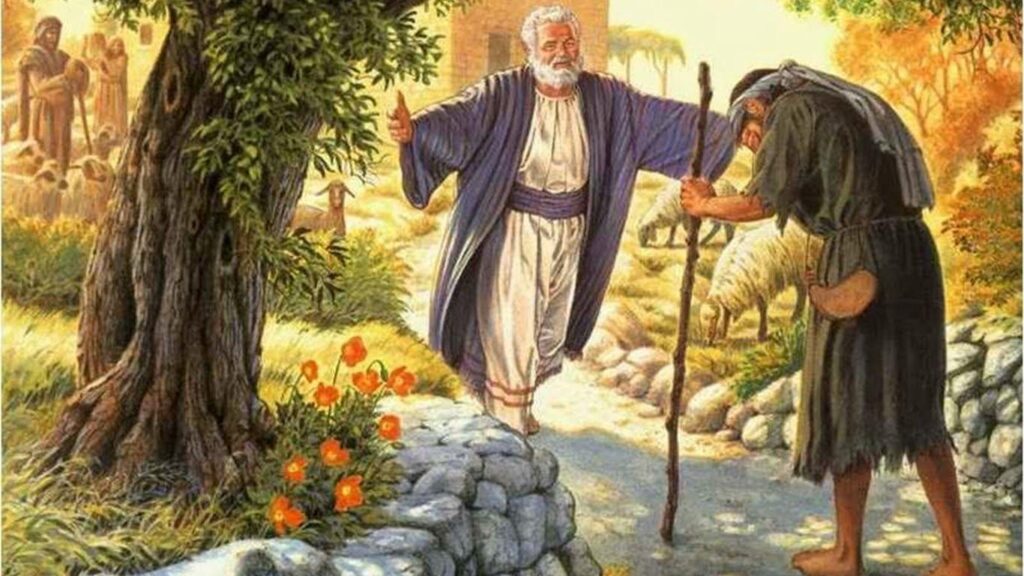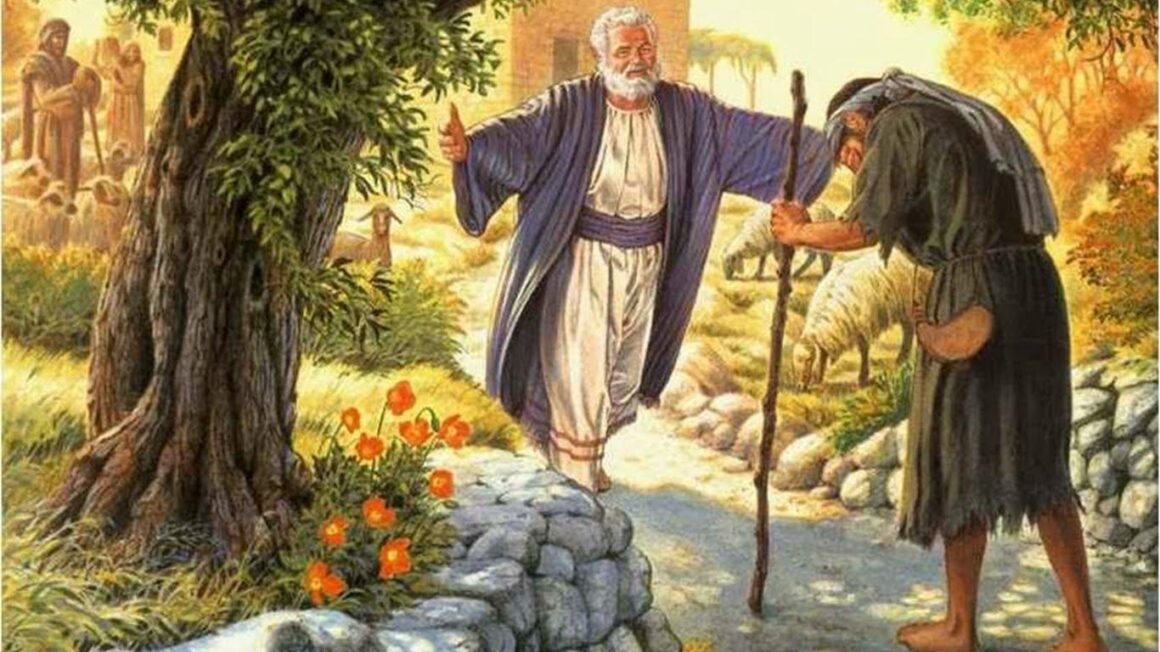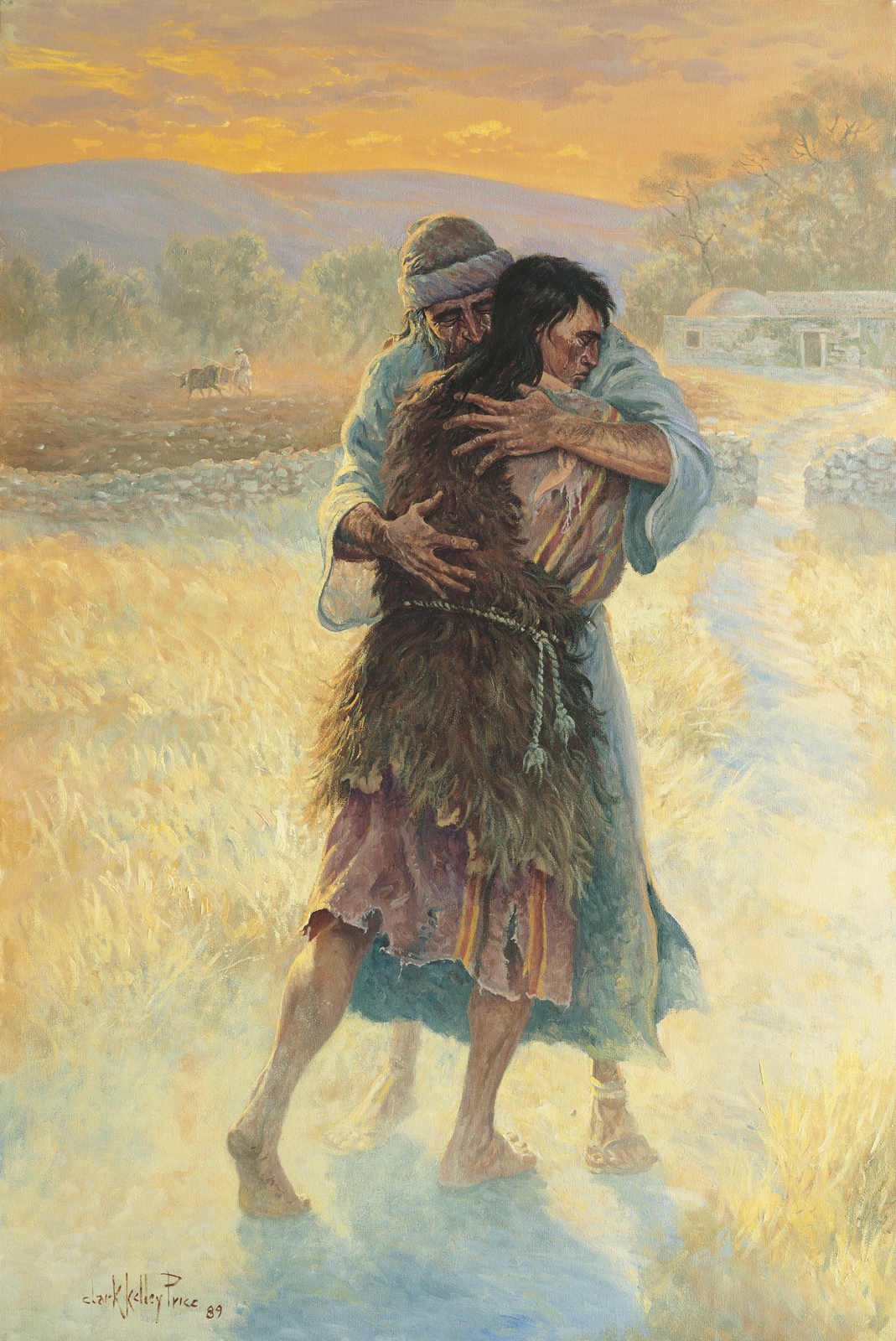The Prodigal Son: A Story of Forgiveness and Grace
In Luke 15:11-32, Jesus tells the story of a son who demands his inheritance, squanders it, and returns to his father in shame. His father welcomes him with open arms, symbolizing God’s unending grace and forgiveness. This story reminds us of the power of reconciliation and mercy.

The Prodigal’s Journey
The younger son takes his inheritance and travels to a distant country. There, he squanders his wealth in reckless living. The Bible describes his life as one of extravagance and wastefulness: “He squandered his wealth in wild living” (Luke 15:13). After spending everything, a severe famine arises, and he finds himself in dire need.
The Son’s Desperation
As the famine worsens, the young man is forced to take a job feeding pigs. This was particularly humiliating for a Jewish person, as pigs were considered unclean animals. He is so desperate that he longs to eat the pods the pigs are eating, but no one gives him anything (Luke 15:15-16).
The Moment of Realization
In his state of desperation, the prodigal son comes to his senses and decides to return home. He reflects on his father’s house and realizes that even the hired servants there have plenty to eat. He decides to go back and confess his sins to his father, saying, “Father, I have sinned against heaven and against you. I am no longer worthy to be called your son; make me like one of your hired servants” (Luke 15:18-19).

The Father’s Forgiveness
As the son approaches home, his father sees him from a distance, which indicates that he had been watching and waiting for his return. Filled with compassion, the father runs to his son, embraces him, and kisses him (Luke 15:20). The son begins his prepared speech of repentance, but the father interrupts him, instructing his servants to bring the best robe, a ring, and sandals for him. He orders a feast to be prepared to celebrate the return of his son, saying, “For this son of mine was dead and is alive again; he was lost and is found” (Luke 15:22-24).
The Older Son’s Reaction
The older son, who has been working in the fields, hears the celebration and asks a servant what is happening. When he learns that his brother has returned and that a feast is being held, he becomes angry and refuses to go in (Luke 15:25-28). The father comes out and pleads with him, explaining that it is right to celebrate the return of the lost son because he was lost and is now found. The father reassures the older son that he has always been with him and that everything he has is also his (Luke 15:29-31).
The Parable’s Message
The Parable of the Prodigal Son illustrates several key points:
- God’s Grace and Forgiveness: The father’s reaction symbolizes God’s unconditional love and readiness to forgive those who repent and return to Him, no matter how far they have strayed.
- Repentance: The story highlights the importance of recognizing one’s mistakes and seeking reconciliation.
- Joy in Heaven: The celebration of the lost son’s return represents the joy in heaven over one sinner who repents (Luke 15:7, 10).
This parable encapsulates the essence of redemption and forgiveness, showing that God’s grace is available to everyone who turns to Him with a repentant heart.



